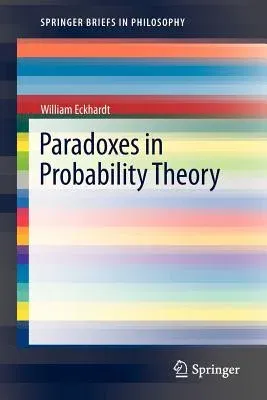William Eckhardt
(Author)Paradoxes in Probability Theory (2013)Paperback - 2013, 27 September 2012

Qty
1
Turbo
Ships in 2 - 3 days
In Stock
Free Delivery
Cash on Delivery
15 Days
Free Returns
Secure Checkout
Part of Series
Springerbriefs in Philosophy
Part of Series
Springer Briefs in Philosophy
Print Length
79 pages
Language
English
Publisher
Springer
Date Published
27 Sep 2012
ISBN-10
9400751397
ISBN-13
9789400751392
Description
Product Details
Author:
Book Edition:
2013
Book Format:
Paperback
Country of Origin:
NL
Date Published:
27 September 2012
Dimensions:
22.86 x
15.24 x
1.27 cm
Genre:
Science/Technology Aspects
ISBN-10:
9400751397
ISBN-13:
9789400751392
Language:
English
Location:
Dordrecht
Pages:
79
Publisher:
Weight:
136.08 gm

